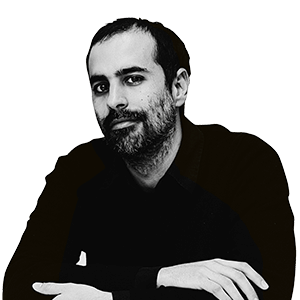Úrsula Corberó: "When I speak Catalan, I'm a different person, and also a different actress."
Actress, premieres the film 'The Jockey'


BarcelonaÚrsula Corberó (Sant Pere de Vilamajor, 1989), the most international Catalan actress of the moment, makes her debut in Argentine cinema with The jockey, a dislocated tragicomedy in which she and Nahuel Peréz Biscayart are two rival race jockeys who are, nevertheless, lovers. As if Kaurismäki's hieratic humor met cinema. cartoon Wes Anderson's film, Luis Ortega's film (The angel) which hits theaters this Friday –one of the biggest hits of recent Argentine cinema– shows a playful and charismatic Corberó, an actress in search of new ways to use her talent and cinematic genius.
The jockey He has a very authorial, absurd humor that's unlike any of the series and films he's done before. Did you want to offer a new style as a performer?
— Yes. I've been trying to get into more auteurist cinema for years, but sometimes it's hard because people have me pinned on more commercial things. And I don't deny commercial films and series, but I wanted to delve into a new world. I'm curious and I like to step out of my comfort zone. I already knew the director, Luis Ortega, because he's worked with Chino [Darín], my partner, and I've been a bit of a pain: every time I saw him, I told him I wanted to work with him.
And have you had to change your way of acting to adapt to Ortega's style?
— No, I haven't adapted, and that's okay, not adapting. When you adapt to something, it's like, "Mission accomplished." Here, however, I'm not in control, and it's okay not to be in control of things, especially creatively. You suffer a little, of course. I'm a very structured person, somewhat... control freakBut this was a film about letting loose. I was surrounded by a wonderful team, there was a special brotherhood, like puzzle pieces that fit together. And I heard I could slow down and explore my profession from a different perspective.
There's a sensational musical number you perform with Nahuel Pérez Biscayart. How much of it is choreography and how much is spontaneity?
— There's no choreography. Or rather, there was a choreography we rehearsed for a long time, but we ended up improvising it. It was my second day of filming, and not by chance: Luis wanted to start with the dance and for us to let loose, jump... That said, we focused on the more interpretive aspect. Ultimately, the dance is the presentation of this couple and how they relate to each other.
Explain the characters based on their way of dancing.
— Yes, especially to talk about their chemistry. In the dance, you can see that they're very different people, that they're a couple and at the same time compete with each other.
This is something you always convey as an actress: that capacity for enjoyment. How important is it to you to have fun in your work?
— Essential. Feeling bad doesn't work. I respect people who have that method, but feeling bad makes me a worse actress. There are people who love it, people with the ability to overcome all adversity... But not me. And doing The jockey I had a great time: valued, cared for and free.
What is your relationship with fame and to what extent do you enjoy it?
— Look, I enjoy the good things about fame, but not the bad things. Fame is overrated; from the outside, it's idealized. I've always treated it as a game. At home, I don't dress the same as I do at a film festival. I mean, I try to be authentic, but really, it's all about the vocation of portraying other people. And I always try to have a good time, even though sometimes I don't manage it. But I don't want to play the victim. After all, I'm privileged and I can pursue my passion. And if I'm having a bad day, I don't leave the house. Dealing with exposure when you're having a bad day can make the day three times worse. You have to listen to yourself and say, "Maybe it's better not to go to this dinner."
He began acting in Ventdelplà and in some Catalan-language TV movies, but the bulk of your career has been in Spanish and English. Now that you want to try making more authorial films and there's a new generation of Catalan filmmakers, would you like to work in Catalan again?
— I would love to work in Catalan, and the truth is, I've been close to doing a couple of things in Catalan, but in the end, for various reasons, they didn't come to fruition. But yes, I would really like to, because I feel like when I speak Catalan, I'm a different person, and also a different actress. It's what most resembles my inner self, because I think in Catalan; it's the language my family speaks. I've never spoken Spanish with them.
And is it frustrating not having been able to perform more in Catalan?
— I haven't experienced it that way, because I already like playing things other than myself. Something strange happens to me with English, because a few years ago I couldn't master it at all, but now I feel like I'm a better actress in English than in Spanish because I feel like there's less prejudice against me. The further I distance myself from who I am, the more I see myself from the outside, and this, as an actress, is a very interesting world to explore. But if I perform in Catalan, I'll surely connect with a more personal connection, and that can also be beautiful.
